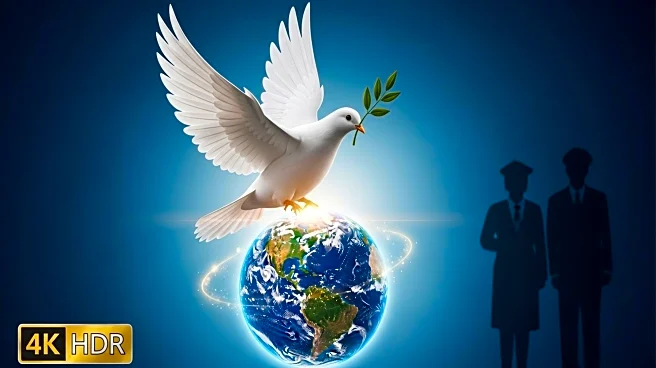What's Happening?
President Donald Trump and Israeli Prime Minister Benjamin Netanyahu have unveiled a 20-point peace plan aimed at ending the ongoing conflict in Gaza. The plan, discussed during a meeting at the White House, includes the establishment of a 'board of peace' to oversee its implementation, with President Trump at the helm. The proposal has been agreed upon by Israel, and President Trump has assured Netanyahu of full U.S. support should Hamas reject the plan. The initiative seeks to halt hostilities and facilitate a peaceful resolution to the conflict.
Why It's Important?
The proposed peace plan is a significant diplomatic effort by the U.S. to address the protracted conflict in Gaza. It underscores the U.S.'s role as a key mediator in Middle Eastern affairs and its commitment to supporting Israel. The plan's success could lead to a reduction in violence and improve regional stability, benefiting both Israeli and Palestinian populations. However, the plan's acceptance by Hamas remains uncertain, and its rejection could lead to further tensions. The initiative also reflects President Trump's foreign policy approach and his administration's focus on achieving peace in the region.
What's Next?
The next steps involve diplomatic efforts to persuade Hamas to accept the peace plan. The U.S. and Israel may engage in further negotiations with Palestinian representatives and other regional stakeholders to garner support for the initiative. The international community will likely monitor the situation closely, and any developments could influence future U.S. foreign policy in the Middle East. The outcome of this peace plan could also impact President Trump's legacy and his administration's diplomatic achievements.










